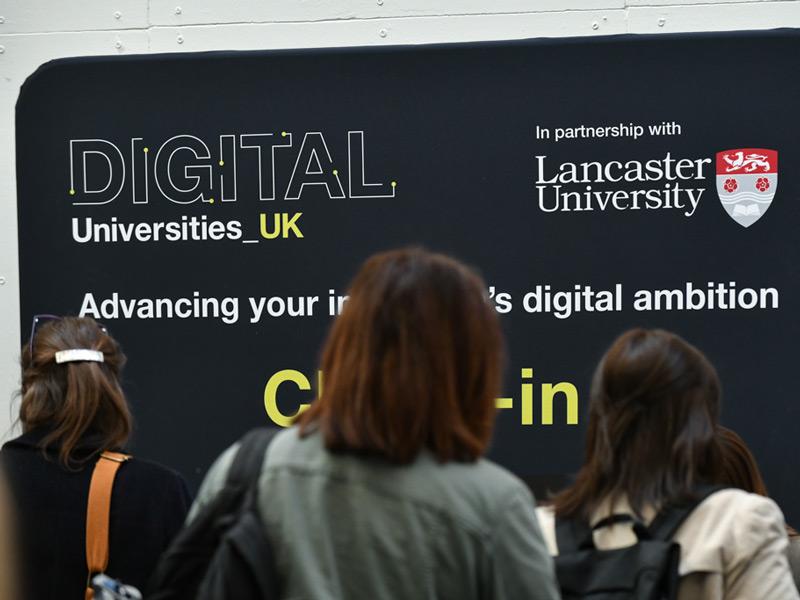Mobile-first digital strategies must be closely aligned with what students want and focus on streamlining the student experience, said the participants at a round table discussion, held in partnership with TouchNet at the 2025 THE Digital Universities UK event.
Today’s students are used to social media and they expect similar experiences when they come to university, said Michelle Carrington, senior experience and insights manager at the Open University. “They expect notifications on their phones. They don’t want to get feedback or know about their next tutorial via email,” she said.
“Lots of universities already have an app. But what we want is to curate the student experience, and that becomes hard for us to operationalise,” said Christie Pritchard, associate dean of education and student experience at the University of Plymouth.
Steve Britton, head of enterprise collaboration at Kingston University, said that while the university has an app with many functions, students tend to cherry-pick which ones to use, such as timetables, attendance monitoring and bus schedules. Britton said that to stay ahead of evolving student needs, universities need to engage with the next generation of students and incorporate the relevant functionalities.
Leslie Johns, solutions consultant at TouchNet, spoke about the benefits of digital ID cards in improving access and student well-being. “It’s about streamlining entry to university and access across the campus,” Johns said.
TouchNet’s 360u app connects students, staff and faculty to essential campus systems with a single sign-on, including secure access to buildings, class check-ins, event registrations and campus navigation. Students can use the app to receive campus notifications and alerts. The OneCard Campus ID in 360u enables students to add their mobile ID to Apple and Android devices. Universities that already have institutional apps have the option to integrate the OneCard Campus ID into their existing apps.
The number of ways that students are contacted or receive messages adds to the challenge, said Jackie Potter, dean of academic innovation at the University of Chester: “It can be overwhelming when they can’t identify a single channel or place where messages will come in and assign importance, relevance or urgency to them based on the channel that we use to communicate.”
There could be value in a mobile application that integrates different elements that institutions rely on, said Claire Webster, digital projects officer at Brighton and Sussex Medical School. Amy Sampson, associate director of Greenwich Online at the University of Greenwich, echoed this point: “One of the difficulties we have as a sector is integrations and getting different systems to talk to each other.”
Students’ requirements also change during their university experience and apps that evolve to meet their needs could significantly improve their experience, the participants said. For example, Webster said that finance inquiries from students peak at her institution after their fourth-year exams. “Pushing certain data throughout the year would be helpful for them,” she said.
Digital applications can be a valuable source of data about student behaviour and engagement. It’s important to have the data about student issues but following that up with some qualitative research to understand why is crucial, said Carrington.
Pritchard noted that the spotlight on data requires a clearly understood pathway and touchpoints for students. “If I have distance learners on a course and they’re solely online, we can’t quite clearly articulate what success looks like in terms of engagement for those students, compared with a traditional 18-year-old who’s relocated to university or a commuter student,” she said. The ability to gain holistic and actionable insights from different data points and concerns regarding privacy and transparency are among the key challenges to using data effectively.
Learn how TouchNet’s 360u app serves as the single point of access for students to manage the entire campus experience.


comment